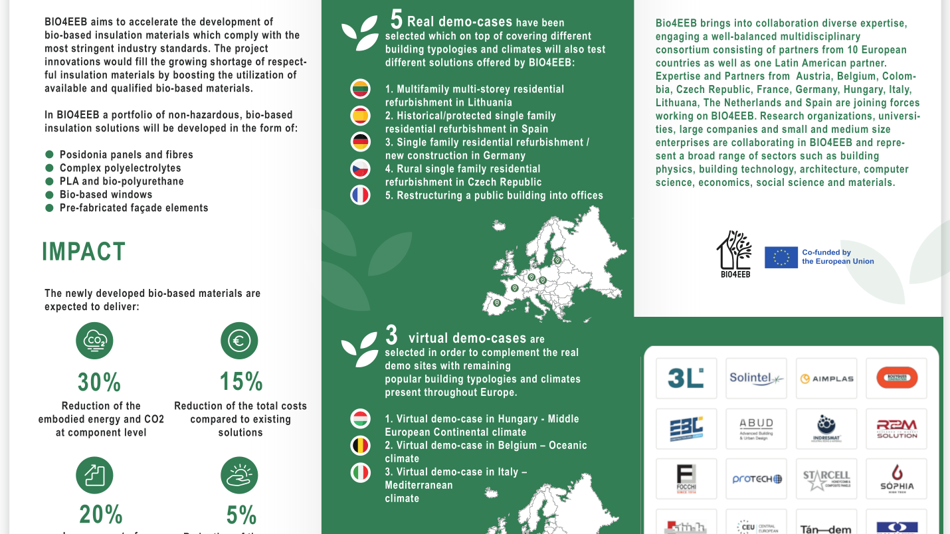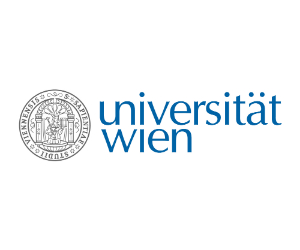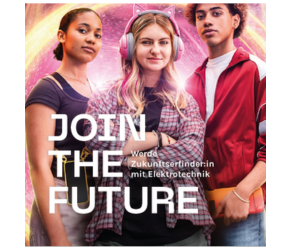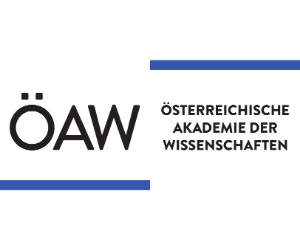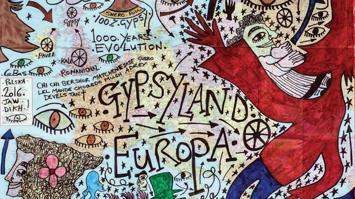Ausstellung
How can integrating bio-based materials into construction projects contribute to enhancing both sustainability and energy efficiency in buildings, thus participating in climate change mitigation?
Durchschnittliche Verweildauer: 5 Minuten
Maximale Kapazität der Station: 5 Personen
The BIO4EEB project introduces bio-based insulation materials aimed at improving the building industry's impact on the environment. This collaborative effort unites researchers and professionals from 10 European countries and a Latin American partner, all working together towards sustainable solutions in construction.
Why BIO4EEB? The project focuses on reducing buildings' carbon footprint and enhancing energy efficiency. It uses Posidonia oceanica, a seagrass known for its renewable properties and benefits to the environment, emphasizing sustainability in building materials.
Comparison Highlighted Through the Exhibition: Throughout the exhibition, visitors will see detailed comparisons between bio-based and non-bio-based materials. This comparison aims to illustrate the environmental and energy efficiency benefits of bio-based materials, such as reduced CO2 emissions and lower energy consumption throughout a building's lifecycle. By presenting data and real-world applications, the exhibition makes a compelling case for the switch to bio-based solutions in construction.
Besucherinformation
Anfahrtsbeschreibung: Von der U1 Station Reumannplatz mit den Straßenbahnen 6 und 11 (Schrankenberggasse) direkt erreichbar. 5 Gehminuten von der D-Wagen Station Absberggasse.
Dieser Ausstellungsstandort ist barrierefrei zugänglich und verfügt über barrierefreie Toiletten.
eine barrierefreie Toilette befindet sich im Erdgeschoss
Öffnungszeiten
Kontakt
Information
Dr. Adel Boumerzoug is a Postdoctoral Researcher, BIO4EEB project (led by Diana Urge-Vorsatz), and will lead this station in 3 languages: English, French, Arabic
27 weitere Stationen an diesem Standort
-
Experiment / VorführungMoral Judgements in Real LifeNeuThema: Gesellschaft GesundheitOur visitors can participate in a set of vignette studies which provide various moral dilemmas. We will show how, by manipulating small elements of situations, change moral judgements of people regarding these dilemmas and thus provide evidence for how you judge morality in your daily lives.Central European University17:00 - 22:00
-
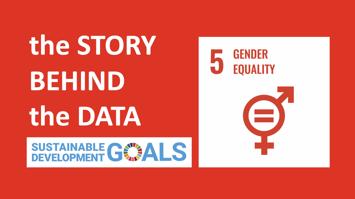 VortragMaking women count: How to measure gender equality? The story behind the dataThema: GesellschaftJoin our session on gender equality's latest data insights. Hear from experts in gender studies, policy, and data analysis, and delve into data's depths and the stories behind it. This session is for anyone interested in data, gender equality, and global concerns, promising to deepen understanding and stimulate discussion on this crucial issue.Central European University17:00 - 22:00
VortragMaking women count: How to measure gender equality? The story behind the dataThema: GesellschaftJoin our session on gender equality's latest data insights. Hear from experts in gender studies, policy, and data analysis, and delve into data's depths and the stories behind it. This session is for anyone interested in data, gender equality, and global concerns, promising to deepen understanding and stimulate discussion on this crucial issue.Central European University17:00 - 22:00 -
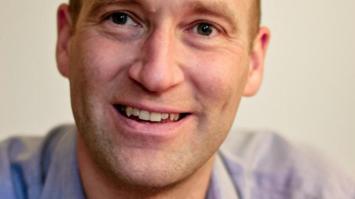 VortragMeasuring What Matters - The Risks of Overreliance on a Single StoryThema: Digitalisierung WirtschaftDa es in fast allen afrikanischen Staaten keine Volkszählungen gibt, verlassen sich Entscheidungsträger:innen bei Entwicklungsmaßnahmen auf Haushaltsbefragungen. Valentin Seidler hat sich eingehend mit diesen Daten befasst, die praktisch für jede politische Entscheidung in Afrika südlich der Sahara die Grundlage bilden. Die große Abhängigkeit von diesen Daten birgt jedoch Risiken.Central European University (CEU)17:00 - 22:00
VortragMeasuring What Matters - The Risks of Overreliance on a Single StoryThema: Digitalisierung WirtschaftDa es in fast allen afrikanischen Staaten keine Volkszählungen gibt, verlassen sich Entscheidungsträger:innen bei Entwicklungsmaßnahmen auf Haushaltsbefragungen. Valentin Seidler hat sich eingehend mit diesen Daten befasst, die praktisch für jede politische Entscheidung in Afrika südlich der Sahara die Grundlage bilden. Die große Abhängigkeit von diesen Daten birgt jedoch Risiken.Central European University (CEU)17:00 - 22:00 -
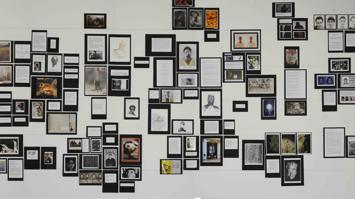 Experiment / VorführungWhat's Left of Human Nature? An interactive performance (EN/DE)Thema: Gesellschaft KulturEine interaktive Performance der Philosophin Maria Kronfeldner über die menschliche Natur // An interactive performance by philosopher Maria Kronfeldner that explores human nature.Central European University17:00 - 22:30
Experiment / VorführungWhat's Left of Human Nature? An interactive performance (EN/DE)Thema: Gesellschaft KulturEine interaktive Performance der Philosophin Maria Kronfeldner über die menschliche Natur // An interactive performance by philosopher Maria Kronfeldner that explores human nature.Central European University17:00 - 22:30 -
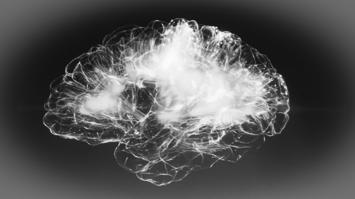 VortragWhat is Cognitive Science? How to study the Human Mind?Thema: Gesundheit NaturwissenschaftenIn this series of talks, researchers of the Department of Cognitive Science will provide insight into their approach of studying the mind illustrating the broad range and diversity of this field of research. Basic topics as well as current topics from social and infant cognition research, will be introduced and discussed.Central European University19:30 - 22:00
VortragWhat is Cognitive Science? How to study the Human Mind?Thema: Gesundheit NaturwissenschaftenIn this series of talks, researchers of the Department of Cognitive Science will provide insight into their approach of studying the mind illustrating the broad range and diversity of this field of research. Basic topics as well as current topics from social and infant cognition research, will be introduced and discussed.Central European University19:30 - 22:00 -
Experiment / VorführungGreen Squares, or Red Diamonds?Thema: Gesundheit NaturwissenschaftenHow do people put the meaning of words together in their heads? In this experiment, you have to be fast to find the right shapes and colors – and at the end, you’ll learn something about how your eyes and your language work together to understand the world.Central European University17:00 - 22:00
-
Experiment / VorführungThe Future Past IllusionThema: Gesundheit NaturwissenschaftenDid you actually lock your door, or do you just think you did because you usually do? Our brain constantly predicts what’s next. Find out in our hands-on experiment whether you’re remembering the past correctly, and if not, why!Central European University17:00 - 22:00
-
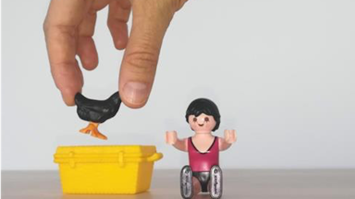 Experiment / VorführungThe Playmobil of TimeThema: Gesellschaft GesundheitWhen you get dressed in the morning, putting on socks first is smarter than putting on shoes first: Which event comes first in time is really important. In this experiment, we will find out how your brain orders things in time while you play with playmobils!CEU Wien17:00 - 22:00
Experiment / VorführungThe Playmobil of TimeThema: Gesellschaft GesundheitWhen you get dressed in the morning, putting on socks first is smarter than putting on shoes first: Which event comes first in time is really important. In this experiment, we will find out how your brain orders things in time while you play with playmobils!CEU Wien17:00 - 22:00 -
Experiment / VorführungHow do emotions help us to understand the world around us? Understanding humans’ complex cultural environmentsThema: GesellschaftViewers will see an experimental task procedure where different action performances and emotional displays will be presented.Central European University17:00 - 22:00
-
Experiment / VorführungJoint visual search can facilitate learning of spatial regularityThema: Gesundheit NaturwissenschaftenPrevious studies have shown that two people acting together can entail cognitive processes as if they act as one. While literature of visual learning suggested the link between action and learning, little was investigated in a social situation. The research project of Chifumi Sakata investigated how acting together affects learning of spatial layout.Central European University17:00 - 22:00
-
FührungWant to see how we study social minds? Come to our lab and take a tour!Thema: Gesundheit NaturwissenschaftenLab tour showing some experimental setups and giving general info on what we are doing hereCentral European University17:00 - 22:00
-
MitmachstationHow Do Illusions Reveal the Brain's Optimal Functioning?Thema: GesundheitThis station is about exploring how optical and sensory illusions reveal the brain's optimal functioning.Central European University17:00 - 20:00
-
FührungDoes Choosing What to Learn Make Us Better Teachers?Thema: Gesundheit NaturwissenschaftenThis study investigates if choosing what to learn improves teaching. We explore whether active selection enhances understanding and communication.Central European University17:00 - 22:00
-
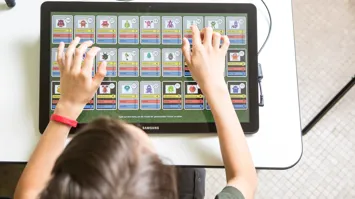 Experiment / VorführungHow do children learn so much about the world and so efficiently?Thema: NaturwissenschaftenThe Research Group iSearch investigates theoretically and empirically how children actively search for information in their physical and social environments to obtain clues for testing and revising their hypotheses over time. We have developed several fun tablet games aimed at comprehensively assessing children's active learning performance from a developmental perspective-and we are happy to have you try them out!Central European University17:30 - 20:30
Experiment / VorführungHow do children learn so much about the world and so efficiently?Thema: NaturwissenschaftenThe Research Group iSearch investigates theoretically and empirically how children actively search for information in their physical and social environments to obtain clues for testing and revising their hypotheses over time. We have developed several fun tablet games aimed at comprehensively assessing children's active learning performance from a developmental perspective-and we are happy to have you try them out!Central European University17:30 - 20:30 -
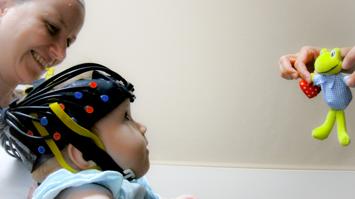 FührungHow to study the babies’ mind and their exceptional learning abilities? A guided hands-on tour of the KiKo Research CenterThema: Gesundheit NaturwissenschaftenBabies learn an impressive amount of things during the first years of life, but how to find out what they know about the world and how their learning unfolds? We invite you to visit the laboratories of the Kiko Research centre and to discover first-hand the modern research methods to study the infant mind, such as eye-tracking and neuroimaging. Kids and families are welcome to participate!Central European University17:00 - 22:00
FührungHow to study the babies’ mind and their exceptional learning abilities? A guided hands-on tour of the KiKo Research CenterThema: Gesundheit NaturwissenschaftenBabies learn an impressive amount of things during the first years of life, but how to find out what they know about the world and how their learning unfolds? We invite you to visit the laboratories of the Kiko Research centre and to discover first-hand the modern research methods to study the infant mind, such as eye-tracking and neuroimaging. Kids and families are welcome to participate!Central European University17:00 - 22:00 -
 Experiment / VorführungWhat is the Size-Stroop-Effect?Thema: GesundheitOur visitors can participate in a simple, playful task and see in real-time how they contribute to scientific discoveries. We would like to show them how their behavior is translated into data, how each participant’s contribution is unique, and how it paints a picture of general thinking patterns if analyzed together.Central European University17:00 - 22:00
Experiment / VorführungWhat is the Size-Stroop-Effect?Thema: GesundheitOur visitors can participate in a simple, playful task and see in real-time how they contribute to scientific discoveries. We would like to show them how their behavior is translated into data, how each participant’s contribution is unique, and how it paints a picture of general thinking patterns if analyzed together.Central European University17:00 - 22:00 -
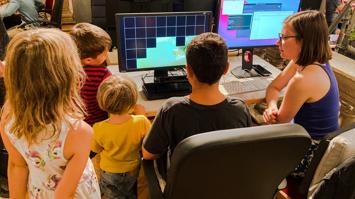 Experiment / VorführungHow can babies control a computer with their eyes and how to use eye movements to study their cognitive skills?Thema: Gesundheit NaturwissenschaftenEye tracking allows to detect a person’s gaze and follow in real time what they are looking at. Eye tracking is a great tool to study what babies and young children understand about the world and how they interact with technology before they can speak, manipulate objects, or walk. Stop by to try out some eye-tracking studies and experience how it feels to control a computer with your eyes.Central European University17:00 - 22:00
Experiment / VorführungHow can babies control a computer with their eyes and how to use eye movements to study their cognitive skills?Thema: Gesundheit NaturwissenschaftenEye tracking allows to detect a person’s gaze and follow in real time what they are looking at. Eye tracking is a great tool to study what babies and young children understand about the world and how they interact with technology before they can speak, manipulate objects, or walk. Stop by to try out some eye-tracking studies and experience how it feels to control a computer with your eyes.Central European University17:00 - 22:00 -
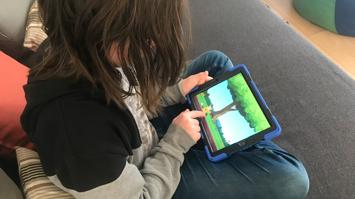 MitmachstationTeamwork pays off - but how do you pick the best partners to cooperate with?Thema: Gesundheit NaturwissenschaftenWe study the development of children’s cooperative skills - especially the question how they choose good partners for collaborating. Try out the iPad research game we developed for this purpose and find out more about what makes a good team player and why it is important to recognize them.Central European University17:00 - 22:00
MitmachstationTeamwork pays off - but how do you pick the best partners to cooperate with?Thema: Gesundheit NaturwissenschaftenWe study the development of children’s cooperative skills - especially the question how they choose good partners for collaborating. Try out the iPad research game we developed for this purpose and find out more about what makes a good team player and why it is important to recognize them.Central European University17:00 - 22:00 -
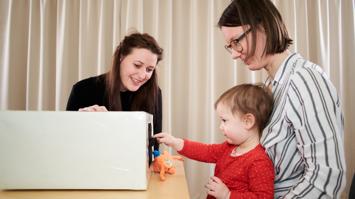 MitmachstationHow smart are babies? Do the KiKo-quiz to find out!Thema: Gesundheit NaturwissenschaftenBabies are capable of much more than commonly assumed. How much do you know about the developing minds of infants? Do the quiz to learn more about the questions that have been recently studied.Central European University17:00 - 22:00
MitmachstationHow smart are babies? Do the KiKo-quiz to find out!Thema: Gesundheit NaturwissenschaftenBabies are capable of much more than commonly assumed. How much do you know about the developing minds of infants? Do the quiz to learn more about the questions that have been recently studied.Central European University17:00 - 22:00 -
VortragMinority Rights – Towards Effective Enforcement Through Critical Mass ParticipationThema: GesellschaftLearn about the role mass participation can play in claiming minority rights, from language use to school desegregation. Can court litigation benefit from wider involvement of people subject to discriminative practices? The lecture presents the ways in which efforts to include more claimants in legal procedures can result in more effective minority rights enforcement and create, ultimately, more equal societies.Central European University17:00 - 22:00
-
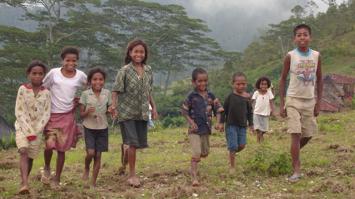 MitmachstationWhat happens when communities are not involved in research?Thema: Gesellschaft UmweltThe station will be organised as an interactive classroom. Through colourful images and experienced-based stories of conducting a nationwide community-based participatory rural assessment (PRA) in post-conflict Timor-Leste.Central European University17:00 - 22:00
MitmachstationWhat happens when communities are not involved in research?Thema: Gesellschaft UmweltThe station will be organised as an interactive classroom. Through colourful images and experienced-based stories of conducting a nationwide community-based participatory rural assessment (PRA) in post-conflict Timor-Leste.Central European University17:00 - 22:00 -
Experiment / VorführungCan Our Ears Learn Like Our Eyes Do?Thema: GesundheitExploring if our brain learns sound patterns as it learns visual ones, without explicit instructions.Central European University19:30 - 19:30
-
FührungChanging Scenarios - Changing Confidence?Thema: Gesundheit NaturwissenschaftenIn this tour of the the Vision Lab we will showcase our research about how visual changes and confidence assessments shape decision-making.Central European University17:00 - 22:00
-
MitmachstationCEU's Romani Studies International Academic Publications: Breaking The Book DivideThema: GesellschaftThe academic publications produced by CEU’s Romani Studies program represent an unprecedented legacy in the field not just in terms of volume, but notably in terms of new representation of young Roma academics and budding Romani Studies scholars internationally. Works of the Journal of Critical Romani Studies, CEU Press's Romani Studies Book Series, and the book series that CEU Romani Studies will be presented.Central European University (CEU)17:00 - 22:00
-
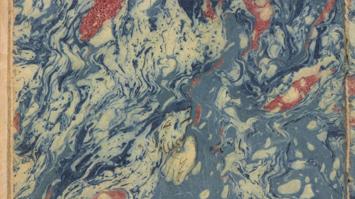 MitmachstationEurAsian Friendship Albums / Freundschaftsbücher aus EurAsianThema: Gesellschaft KulturThis research focuses on historical entanglements on paper in the early modern EurAsia embodied in friendship albums (alba amicorum) collected by central Europeans living in Ottoman Constantinople. These albums are closely related to the friendship albums circulating in kindergartens and elementary schools nowadays. The visitors will be engaged by setting up a display with multi-lingual entries.Central European University (CEU)17:00 - 22:00
MitmachstationEurAsian Friendship Albums / Freundschaftsbücher aus EurAsianThema: Gesellschaft KulturThis research focuses on historical entanglements on paper in the early modern EurAsia embodied in friendship albums (alba amicorum) collected by central Europeans living in Ottoman Constantinople. These albums are closely related to the friendship albums circulating in kindergartens and elementary schools nowadays. The visitors will be engaged by setting up a display with multi-lingual entries.Central European University (CEU)17:00 - 22:00 -
VortragThe impact of repeated mass antigen testing for COVID-19 on the prevalence of the diseaseThema: Digitalisierung WirtschaftIn the absence of effective vaccination, mass testing and quarantining of positive cases and their contacts could help to mitigate pandemics and allow economies to stay open. We investigate the effects of repeated mass testing on the COVID-19 pandemic caused by the SARS-CoV-2 virus, using data from the first-ever nationwide rapid antigen testing implemented in Slovakia in autumn 2020.Central European University17:00 - 22:00
-
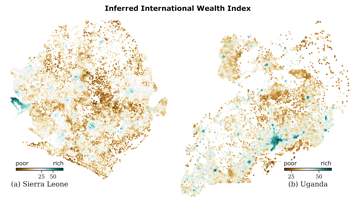 AusstellungWhere Need is Greatest: Finding Poverty HotspotsThema: DigitalisierungThe UN aims to end poverty, but progress is stalled. Old poverty maps lack detail, hindering aid efforts. We use sensor data (Web, satellite images) and ML to create high-resolution poverty maps in Africa. This helps policymakers target aid precisely. We aim for tools to fight poverty globally. Our exhibit will feature interactive tools & worksheets to explore poverty, big data, and ML in a fun, engaging way.Central European University (CEU)17:00 - 22:00
AusstellungWhere Need is Greatest: Finding Poverty HotspotsThema: DigitalisierungThe UN aims to end poverty, but progress is stalled. Old poverty maps lack detail, hindering aid efforts. We use sensor data (Web, satellite images) and ML to create high-resolution poverty maps in Africa. This helps policymakers target aid precisely. We aim for tools to fight poverty globally. Our exhibit will feature interactive tools & worksheets to explore poverty, big data, and ML in a fun, engaging way.Central European University (CEU)17:00 - 22:00

